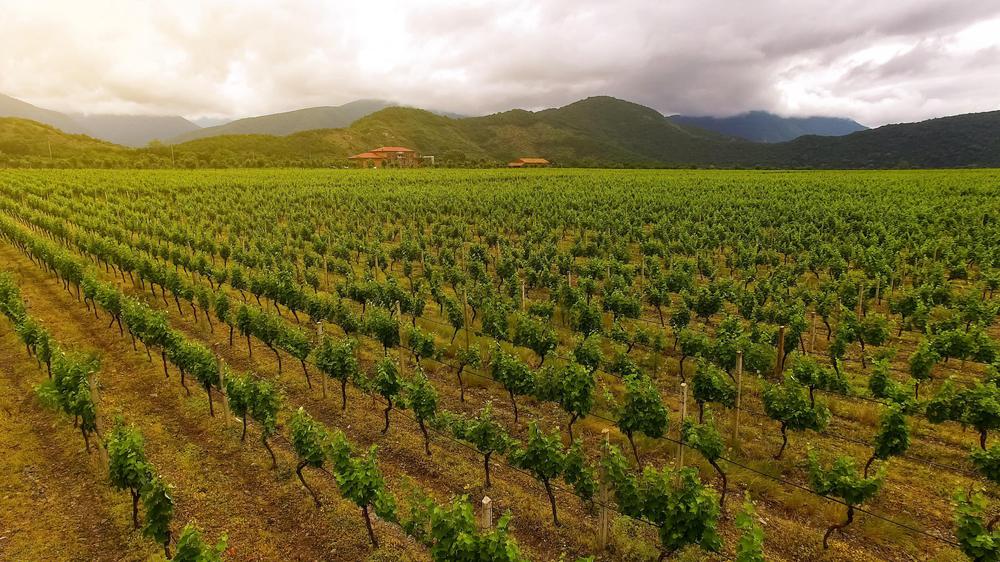Georgian winemaking, a venerable tradition rich in history, is embracing a modern transformation towards biodynamic practices. This shift aligns with a growing global demand for organic, additive-free wines. Georgian winemakers are adapting to this trend, moving from traditional methods to eco-conscious techniques. This article delves into the intricate journey from conventional to biodynamic practices in Georgian winemaking, exploring the challenges, processes, and unique characteristics of these wines. As this niche gains global acclaim, understanding its nuances becomes essential for wine enthusiasts and eco-conscious travelers alike.
Transition to Biodynamic Practices in Georgian Vineyards
The journey towards biodynamic winemaking in Georgia reflects a broader commitment to sustainability. Wineries like Lagvani have embraced this shift, despite initial challenges. Sanata Tsitsuashvili, Lagvani's founder, highlights the drastic reduction in yield—from 10 tons to about 3 tons—attributable to abandoning pesticides and artificial vitamins. The transition is marked by a profound belief in nature's prowess, albeit at a cost.
Similarly, Karlo Kikoria of Bioagro sheds light on the meticulous process of converting a vineyard to organic status. A vineyard previously treated with synthetic chemicals demands 3 to 5 years to revitalize its biocenosis. This period is critical for obtaining certification of biological cleanliness. Despite the complexities and financial demands of this transition, Georgian winemakers persevere, driven by the global demand and premium pricing for organic wines.
The Global Rise of Georgian Organic Wines
The burgeoning popularity of Georgian organic wines on the global stage is a testament to the country's dedication to eco-friendly practices. The transition to organic production doesn't entirely eliminate spraying but requires strict control and limited use of pure biological fertilizers. Georgian winemakers’ commitment to these rigorous standards is paying off, as bio-wines have carved a niche in the international market.
The role of the private sector, coupled with state involvement, is pivotal in promoting Georgian organic wines. Annual participation in international wine exhibitions is a strategic move to raise awareness and expand market reach. This collective effort underscores the importance of organic wine in Georgia's economic and cultural landscape, appealing to a global audience increasingly drawn to sustainable and authentic travel experiences.
Understanding Natural and Organic Wines: The Georgian Context
In the diverse world of wines, natural and organic varieties stand out for their minimal intervention and sustainability-focused practices. Natural wines, celebrating simplicity, are crafted with minimal human interference, allowing nature to sculpt their flavor profiles. Organic wines, on the other hand, emphasize sustainable farming, free from synthetic pesticides and fertilizers. Both types resonate with the modern palate, offering an authentic taste of terroir—a reflection of the unique soil, climate, and cultural influences of the Georgian landscape.
Georgian winemakers are at the forefront of this movement, nurturing grapes in vibrant, life-rich soils. The spontaneous fermentation process, a hallmark of natural wine production, leverages wild yeasts, contributing to the distinctive flavors and aromas. This approach, coupled with ageing in neutral vessels like old oak barrels or clay amphorae, ensures a pure expression of the grape's inherent qualities.
These practices not only accentuate the taste but also positively impact the environment, aligning with the values of eco-conscious travelers seeking authentic, sustainable experiences.
The Art of Making Natural Wine in Georgia
The creation of natural wine in Georgia is akin to a harmonious symphony between man and nature. It begins in the vineyard, with the cultivation of organic grapes devoid of synthetic treatments. This commitment to minimal intervention extends to every stage of winemaking, from the gentle crushing of grapes to the patient aging process.
Natural winemaking in Georgia is characterized by its reliance on spontaneous fermentation. This process allows the natural yeasts to ferment the grape juice, imbuing the wine with unique, location-specific flavors. The choice of aging vessels further influences the wine's character, with a preference for containers that do not overshadow the grape's natural profile.
Despite potential variations in clarity or the presence of sediments, natural Georgian wines are celebrated for their authenticity and dynamic flavor profile. Each sip narrates the story of its origins, the terroir, and the winemaker's dedication to preserving the natural essence of the grape.
Distinctive Traits of Georgian Natural Wines
Natural wines from Georgia, while lacking a universal definition, are characterized by certain distinctive traits. These include organic or biodynamic farming practices, minimal intervention during production, and a strong expression of terroir. Georgian natural wines often exhibit a wide range of styles, from fruity to earthy, reflecting the hands-off approach of winemaking that allows the grape's innate qualities to shine.
A notable aspect of these wines is their lower sulfite content, catering to health-conscious consumers.
However, it's crucial to recognize that not all wines produced under organic or biodynamic standards are automatically classified as natural. The distinction lies in the winemaker's specific practices and the consumer's perception.
In summary, Georgian winemaking's transition to biodynamic practices mirrors a global trend towards sustainability and authenticity in wine production. This evolution not only enhances the quality and distinctiveness of Georgian wines but also positions the country as a key player in the international organic wine market, appealing to travelers and wine enthusiasts seeking genuine, eco-friendly experiences.

 Georgian Wine-Based Products
Georgian Wine-Based Products
 Georgian Wine Industry's Response to Climate Change
Georgian Wine Industry's Response to Climate Change
 Georgian Winemaking on Mars?
Georgian Winemaking on Mars?




